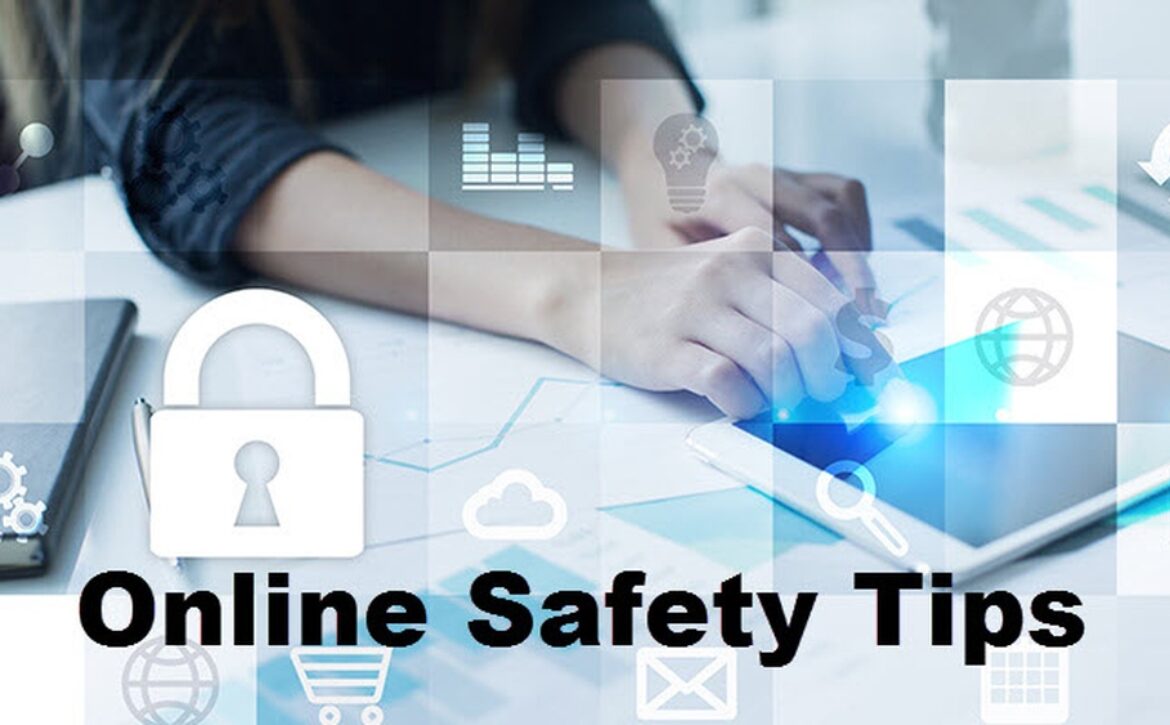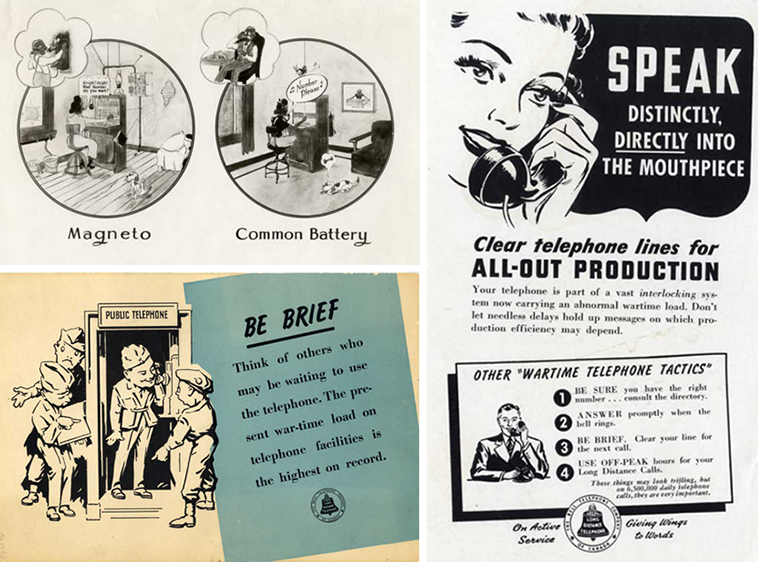
How to Become a Telephone-Etiquette Expert: Top Tips
Do you often find yourself fumbling for words during a phone call, unsure of how to leave a lasting impression or handle tricky conversations? Mastering the art of telephone etiquette can transform your communication skills and boost your confidence.
Imagine being able to connect with anyone, anywhere, with poise and professionalism. Whether you’re a professional aiming to enhance your customer service skills or someone looking to improve personal interactions, learning telephone etiquette is a game changer. This guide will equip you with the secrets to becoming a telephone etiquette pro, ensuring you leave every caller impressed and every conversation a success.
Ready to elevate your phone skills? Let’s dive in and discover how.

Mastering The Basics
Mastering the basics of telephone etiquette is essential for effective communication. It sets the tone for all conversations, ensuring clarity and professionalism. A strong foundation in phone manners can enhance your personal and professional interactions. The key elements include understanding tone, volume, and listening skills.
Understanding Tone And Volume
Tone impacts how your message is received. A friendly tone invites positive engagement. Be aware of your voice’s warmth and sincerity. Volume matters too. Speak clearly, but avoid shouting. A moderate volume is ideal. It ensures the listener understands without strain.
Effective Listening Skills
Listening is vital in phone conversations. It shows respect and interest. Stay focused on the speaker. Avoid distractions like background noise. Respond appropriately to show you understand. Paraphrase to confirm comprehension. This helps avoid miscommunication.
Professional Language Use
Polite language on the phone builds strong connections. Speak clearly and choose respectful words. Listen actively to understand callers better.
Effective telephone etiquette can significantly enhance your professional image. One of the key aspects of mastering this skill is using professional language. Your choice of words on a call can shape the listener’s perception of you and your organization. So, how can you make sure your language remains professional at all times?
Choosing Appropriate Words
Words have power. They can build trust or create confusion. When speaking on the phone, choose words that are clear and respectful. Consider the words you use daily. Are they positive and encouraging? Swap out negative phrases for ones that inspire cooperation and understanding. Imagine you’re speaking to a valued client. Would your choice of words convey respect and confidence? Aim for language that reflects the importance of your relationship.
Avoiding Jargon And Slang
Jargon and slang can be barriers to clear communication. While they might be common in casual conversations, they can alienate or confuse listeners in a professional setting. Picture yourself on a call with someone unfamiliar with your industry. Would technical terms make the conversation feel exclusive or inclusive? Strive for language that everyone can understand. Slang can also vary by region or age group. What might be common in your area could be misunderstood elsewhere. Use language that transcends these differences to ensure clarity. Reflect on your last phone conversation. Did you use terms that might have puzzled the person on the other end? Simplifying your language can prevent misunderstandings and foster a smooth dialogue. Professional language on the phone isn’t just about what you say—it’s about how your words make others feel. Are your words building bridges or walls? By choosing appropriate words and avoiding jargon and slang, you can ensure every call you make leaves a positive impression.
Handling Difficult Calls
Handling difficult calls can feel like navigating a storm. You’re not alone in this challenge; we’ve all been there. Whether it’s an irate customer or a confusing request, mastering telephone etiquette is crucial to ensure the conversation ends positively.
Strategies For Conflict Resolution
Conflict doesn’t have to be your enemy. It’s an opportunity to show empathy and understanding. Start by listening actively. Absorb what the caller is saying without interrupting.
Express empathy by acknowledging their feelings. Say things like, “I understand how that must have been frustrating for you.” This simple gesture can diffuse tension.
Offer solutions instead of excuses. Focus on what you can do right now to make the situation better. If you’re unsure, say you’ll investigate further and follow up promptly. Have you ever turned an angry customer into a loyal one? It’s possible with the right approach.
Staying Calm Under Pressure
Staying calm is your superpower. It’s easier said than done, but practice makes perfect. Start by taking a deep breath before responding.
Maintain a steady tone and pace. Avoid raising your voice. A calm demeanor can often calm the caller too. Remember that your mood sets the tone for the conversation.
Prepare for unexpected scenarios. Have a mental checklist of possible solutions. This preparation boosts confidence and helps you remain composed. How do you keep your cool during heated moments? Share your tactics with others who might struggle.
Handling difficult calls is a skill you can hone. Each call teaches you something new. Embrace the challenges and turn them into learning experiences. With practice, you’ll handle tough calls like a pro.

Improving Call Efficiency
Improving call efficiency can transform your telephone interactions. It saves time and boosts productivity. Efficient calls leave a positive impression. They ensure clear communication and reduce misunderstandings. Below are strategies to enhance your call efficiency.
Time Management Techniques
Effective time management is crucial for call efficiency. Plan your calls. Allocate specific time slots for each call. Avoid long conversations that stray from the main topic. Set a timer if necessary. This keeps calls concise and focused. Prioritize urgent calls over less important ones. Organize your call schedule to prevent overlapping. Use a calendar tool to stay on track.
Setting Clear Objectives
Set clear objectives before making a call. Know the purpose of your call. Write down key points. This helps guide the conversation. It ensures you cover important topics. Share your objectives with the caller. This aligns expectations and focuses the discussion. Clear objectives lead to productive calls. They eliminate confusion and enhance understanding.
Building Positive Rapport
Creating a positive rapport on phone calls requires listening carefully and speaking clearly. Being polite and patient builds trust and comfort. Using friendly language and showing empathy enhances connection, making conversations more pleasant and effective.
Building positive rapport over the phone is crucial in creating lasting connections. It’s not just about the words you say, but how you say them and how you make the other person feel. The art of telephone etiquette involves nurturing a sense of trust and understanding, ensuring that each call leaves a positive impression.
Creating A Welcoming Atmosphere
Your tone can set the stage for a welcoming atmosphere. A warm greeting, such as “Good morning!” or “Hello, how can I help you today?” can make a huge difference. It shows enthusiasm and willingness to engage. Smiling while speaking can be surprisingly effective; it reflects in your voice, making it sound more friendly and approachable. Imagine receiving a call where the person on the other end sounds genuinely happy to talk to you. It’s comforting and encourages open communication. Consider how you would like to be greeted if you were on the receiving end. Would a cheerful tone make you more inclined to continue the conversation? Think about the little things that can make a call feel personal and inviting.
Using Empathy And Understanding
Empathy is about listening and acknowledging the caller’s feelings. If someone sounds frustrated or upset, respond with understanding and patience. Phrases like “I understand how you feel” or “Let me see how I can assist you” can help ease tension. Put yourself in the caller’s shoes. If you were facing a problem, how would you want someone to respond? Empathy allows you to connect on a deeper level, showing the caller that their concerns are valid. Active listening is key. Pay attention to their words and emotions, and respond thoughtfully. Have you ever felt ignored during a call? Avoid that mistake by truly hearing what the caller has to say, and addressing their needs directly. Creating positive rapport on the phone is a skill that can be developed with practice. How do you plan to make your next call memorable for the right reasons?
Utilizing Technology
In the digital age, mastering telephone etiquette involves more than just knowing what to say and how to say it. Utilizing technology effectively can make all the difference in your communication skills. Whether you’re handling business calls or personal conversations, leveraging technology can enhance your interaction and ensure you leave a lasting impression. Let’s explore how you can make the most of caller ID, voicemail, and virtual communication tools.
Leveraging Caller Id And Voicemail
Caller ID allows you to be prepared before picking up the phone. Knowing who’s calling can help you tailor your conversation to suit the caller’s needs. It also gives you the chance to avoid calls that may not be urgent or relevant.
Voicemail is a powerful tool when used correctly. Make sure your voicemail greeting is clear and professional. It’s your chance to set the tone before the actual conversation begins. When leaving a voicemail, keep your message concise and to the point, ensuring you include any necessary details.
Have you ever missed a vital call because you didn’t recognize the number? Caller ID can prevent that scenario. By recognizing the number, you can prioritize important calls and manage your time effectively. Voicemail can capture messages when you’re unavailable, ensuring you never miss critical information.
Adapting To Virtual Communication Tools
Virtual communication tools, like Zoom or Skype, are crucial in today’s world. They allow you to connect with people from anywhere, making communication more flexible and convenient. Familiarizing yourself with these platforms can boost your telephone etiquette.
Make sure your technology is set up correctly before a call. Check your microphone, camera, and internet connection to avoid technical glitches. A smooth virtual call demonstrates professionalism and respect for the other person’s time.
How do you feel about transitioning from phone calls to video calls? This shift can be daunting for some, but embracing these tools can enhance your communication skills. Mastering virtual communication platforms means you’re ready to engage with callers in any format they prefer.
Technology is not just a tool; it’s an extension of your communication skills. By leveraging caller ID, voicemail, and virtual communication tools, you can refine your telephone etiquette. Are you ready to embrace these tools and enhance your conversations?
Continuous Learning
Continuous learning is crucial in mastering telephone etiquette. It helps you stay effective and professional. As communication styles evolve, adapting is key to success. This section explores how to enhance your skills through continuous learning.
Seeking Feedback
Feedback is a powerful tool for growth. Ask colleagues for their opinions. They might notice habits you can improve. Listening to recorded calls can also help. Pay attention to tone and clarity. Make adjustments based on what you hear. Always seek constructive feedback. It fosters improvement and boosts confidence.
Staying Updated On Best Practices
Communication methods change constantly. Stay informed about new trends in telephone etiquette. Read industry blogs and articles regularly. Join forums and discussion groups online. This keeps you aware of current best practices. Training sessions and workshops are also beneficial. They offer insights into effective communication techniques. Keep learning to enhance your telephone skills.
Frequently Asked Questions
What Are The Basics Of Telephone Etiquette?
Telephone etiquette involves speaking clearly, listening actively, and being polite. Always introduce yourself and the purpose of your call. Use a friendly tone, and avoid interrupting the other person. End the call courteously, thanking the person for their time.
Why Is Telephone Etiquette Important In Business?
Telephone etiquette is crucial in business because it creates a positive impression. It enhances professionalism and builds trust with clients. Good etiquette can improve communication and lead to better customer satisfaction, ultimately contributing to business success.
How Can I Improve My Telephone Skills?
Improving telephone skills involves practicing active listening and speaking clearly. Be mindful of your tone and pace. Prepare notes for important calls. Regularly reflect on your conversations to identify areas for improvement and seek feedback.
What Should You Avoid During Phone Calls?
Avoid speaking too quickly or loudly. Do not interrupt the caller or multitask during the conversation. Background noise can be distracting, so find a quiet place for calls. Avoid using slang or informal language in professional calls.
Conclusion
Improving telephone etiquette can transform your communication skills. It boosts confidence. Your interactions become clearer and more effective. Practice active listening and polite language. This makes calls professional and pleasant. Remember, a friendly tone fosters trust. It helps in building strong relationships.
Regular practice leads to improvement over time. Stay patient and consistent. Success in mastering phone etiquette is within reach. Keep learning and refining your skills. With dedication, you will excel. Effective communication opens doors to new opportunities. So, embrace these tips and enhance your telephone manners today.





